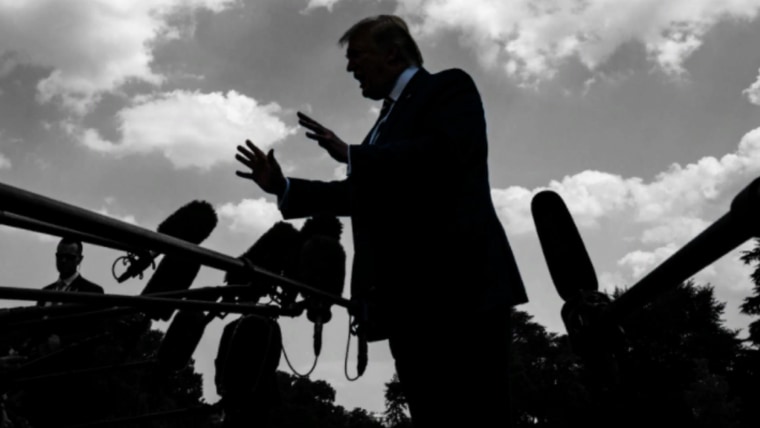For weeks, House Republicans ignored the legitimate reasons why so much of the impeachment inquiry was being conducted behind closed doors and pretended to be outraged by the secrecy. For GOP members, "transparency" became the buzzword of choice for a while.
All of which led to some confusion when Donald Trump suggested on Friday morning that the one thing his allies said they wanted -- public hearings -- was something the president said shouldn't happen. From the official White House transcript:
Q: [W]hat do you expect for the public hearings next week?TRUMP: Well, they shouldn't be having public hearings. This is a hoax. This is just like the Russian witch hunt. This is just a continuation.
A day later, the Republican said those who'd quoted him accurately had "misreported" what he said. In fact, as of Saturday morning, Trump told reporters he no longer cared whether the hearings were public.
It's all a bit confusing, in part because the president and his allies have taken both sides of so many issues.
A month ago, for example, Trump had a very high opinion of Gordon Sondland, a Republican megadonor the president chose to serve as U.S. Ambassador to the European Union. Trump described him as "a really good man" and a "great American."
That changed on Friday, when the president said, "Let me just tell you, I hardly know the gentleman."
What's more, in September, Trump said he didn't want to release a call summary of his phone meeting with Ukrainian President Volodymyr Zelensky. Then he did want to release it, assuming it was exculpatory, when it was actually incriminating. (The president has spent weeks insisting people read the transcript, despite the fact that it's not a transcript, and despite the fact that it makes him appear quite guilty.)
Trump can't even agree with himself on the propriety of providing written answers in federal investigations.
Complicating matters, it's not just Trump. For quite a while, for example, congressional Republicans said it would be of critical significance if the Ukraine scandal produced evidence of Trump pursuing a quid-pro-quo scheme.
When that evidence did, in fact, emerge, Republicans changed direction, insisting that the quid-pro-quo scheme wasn't especially important after all.
Finally, there's acting White House Chief of Staff Mick Mulvaney, who held a press conference to acknowledge Trump's extortion scheme -- "Get over it," Mulvaney said last month -- only to soon after denounce his confession and insist the things he'd just told reporters on camera weren't true.
Not to put too fine a point on this, but can't anybody here play this game?
